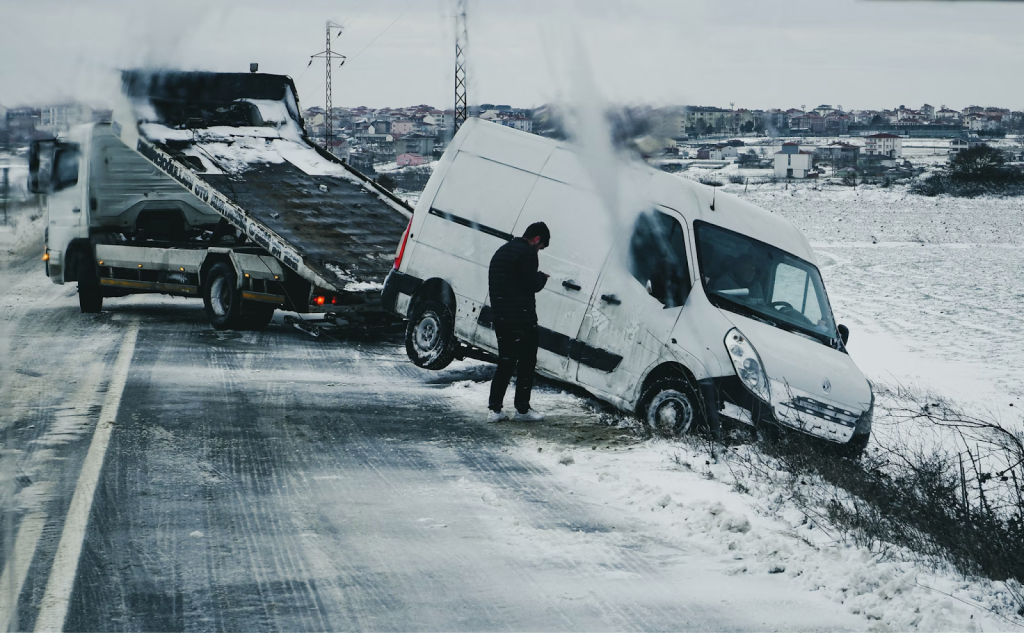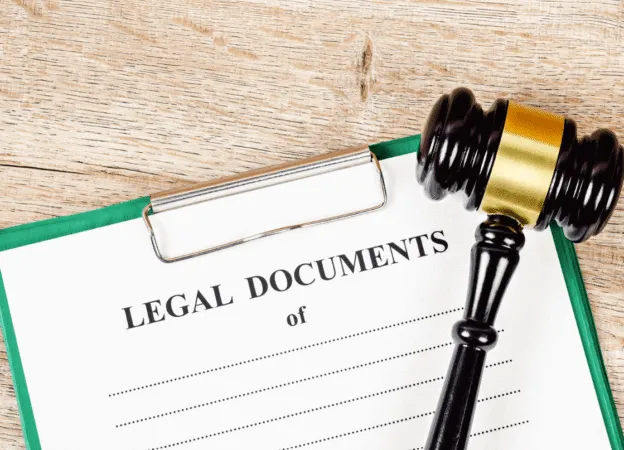Businesses must take immediate action after vehicle accidents because it’s a legal requirement. If you neglect legal obligations for businesses, you may face serious repercussions such as substantial fines, higher insurance rates, and destructive legal actions.
Table of Contents
Consulting with a commercial vehicle accident lawyer early in the process can help you navigate the complex legal landscape that follows an accident.
The $60 billion annual cost of motor vehicle crashes to employers for medical care, legal expenses, property damage and lost productivity makes expert guidance essential for protecting your business.
The Bureau of Labor Statistics reports that workplace transportation incidents kill over 1,766 people each year which makes up more than 38% of all workplace fatalities. When so much is at risk you must grasp your legal obligations because they are indispensable.

This guide demonstrates the specific actions businesses should take when their commercial vehicle is involved in an accident, covering both immediate response requirements and long-term legal obligations for businesses.
This guide teaches you essential steps that will safeguard your business and the individuals associated with it.
What you’ll discover:
- Immediate Steps After a Commercial Vehicle Accident
- Legal Reporting Requirements for Businesses
- Insurance Obligations and Documentation
- Employee-Related Legal Considerations
- Long-Term Legal Compliance and Prevention
Immediate Steps After a Commercial Vehicle Accident
The moment your commercial vehicle gets into an accident your legal responsibilities begin to activate instantly. The decisions you make during the initial minutes and hours following an incident can greatly influence your company’s legal standing.
The first priority is always safety. You have a legal requirement to provide medical care to all individuals involved in an accident. Not offering reasonable help to injured persons leads to further legal problems.
Here’s what you must do right away:
- The driver and business face severe legal penalties for abandoning an accident scene because it constitutes a criminal violation.
- Check for any injuries and immediately provide help while contacting emergency services for the injured persons.
- Establish the scene’s safety by activating hazard lights and placing flares or cones around the area.
- When a commercial vehicle accident occurs you must call the police to ensure they document the scene as required by law.
- Collect all necessary information including names and contact details, insurance information, and vehicle details from everyone involved in the incident.
- Capture photographic evidence of the entire scene including vehicle damage and road conditions together with traffic signs and any other pertinent details.
Your driver should wait at the accident site until police officers show up and give them authorization to depart. Training your drivers about these protocols before any accident occurs fulfills your legal responsibilities.

Legal Obligations for Businesses
Several mandatory reporting requirements become applicable to your business once the immediate crisis has passed.
1. Law Enforcement Reports
Responding officers generate an initial report but businesses must adhere to further reporting duties.
- The business may need to supply extra details that were not collected during the initial incident occurrence.
- CDL drivers must submit both their licensing details and driving history.
- Commercial drivers must undergo drug and alcohol testing after accidents as required by federal regulations.
2. Insurance Notification
Your insurance policy requires that you report any accident immediately even if you are not at fault. Failure to notify your insurer about an accident in a timely manner allows them to refuse coverage. Ensure your report maintains factual accuracy and does not include admission of fault.
An employer faces average accident expenses of approximately $16,500 but injury-related crashes cost nearly $74,000 with fatalities pushing costs over $500,000. Due to these substantial potential expenses proper insurance management becomes critically important.
3. Regulatory Agency Reporting
Your industry dictates which agencies require you to submit specific reports.
- Accident reports for commercial vehicles must be submitted to the Department of Transportation.
- OSHA requires injury reports when an employee experiences workplace harm.
- Each state establishes distinct reporting requirements that must be followed for commercial vehicle accidents.
Organizations that do not fulfill these reporting standards face substantial penalties. Timely reporting requirements of 24-72 hours make it essential to have reporting systems ready before accidents happen.
Insurance Obligations and Documentation
Your insurance policy functions as both a financial backup and a legal contract with specific responsibilities. Proper understanding and execution of these legal obligations for businesses remains essential for the preservation of insurance coverage.
Commercial insurance policies typically demand accident reports as well as witness statements and photographs along with medical records and repair estimates for proper documentation following an accident.
These documents need careful preservation because they might be required for litigation that lasts several months or years. The sharp rise of 18% in fatal truck and bus accidents from 2020 that involved 5,904 vehicles has led insurance companies to examine commercial vehicle claims more closely.
Your insurance provider possesses subrogation rights which enable them to seek reimbursement from parties who may have caused the incident. Your cooperation becomes a contractual obligation under your policy as this requirement is activated.
Employee-Related Legal Considerations
The legal principle of “respondeat superior” establishes employer liability for employee actions conducted during work-related tasks when they drive company vehicles in accidents.
Workers’ compensation laws generally protect employees who sustain injuries while driving for company business. The company must promptly report incidents to the workers’ compensation carrier and ensure that injured employees receive proper medical treatment alongside offering return-to-work programs as appropriate.
Insurance coverage does not complete legal obligations for businesses. A business owner must also ensure proper supervision of who operates the vehicles. Businesses must verify driving records of potential hires while making sure they hold the correct licenses and deliver sufficient safety training and monitor driver conduct.
Inadequate driver screening and supervision practices may result in negligent hiring or negligent entrustment claims that escalate your liability risk.

Long-Term Legal Compliance and Prevention
Businesses face continuous legal responsibilities to prevent future incidents while ensuring they follow established safety regulations beyond the initial response to accidents.
Businesses have to conduct formal accident investigations which consist of performing root cause analysis and creating corrective action strategies while preserving records of the review process. Accident reviews serve both the purpose of legal compliance and the prevention of future accidents.
Your legal requirements after an accident include maintaining a collection of specific records such as driver qualification files and vehicle maintenance records as well as hours of service logs and accident reports together with drug and alcohol testing records in accordance with established regulations.
Businesses must legally update their policies and procedures whenever regulations change or new safety information becomes available. Organizations must track legislative changes while updating internal policies and verify adherence to new operational procedures.
The Road Forward
After a commercial vehicle accident, legal obligations for businesses may appear complex but following them quickly protects your company from future risks.
Let’s recap the key legal responsibilities:
- The immediate response involves making sure the scene is safe while notifying authorities and taking notes about the accident site.
- You must inform the relevant authorities along with your insurance provider.
- Fulfilling your insurance duties requires you to submit necessary documents and work collaboratively with investigative processes.
- Appropriate handling of worker compensation claims together with personnel-related issues forms employee management.
- Ongoing compliance demands continual implementation of safety enhancements together with record maintenance.
Through proper awareness and fulfillment of these responsibilities you can reduce the lasting effects of an accident on your business operations. The investment in proper accident response and prevention gives employers substantial financial returns since motor vehicle crashes cost them $60 billion every year.
Each year over 1,766 people die due to workplace transport incidents while employers face average costs of $74,000 for crashes that result in injuries. The statistics show that compliance of legal obligations for businesses extends beyond fulfilling requirements since it safeguards employees and protects business interests.



